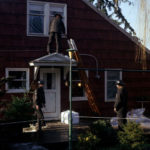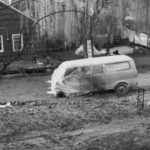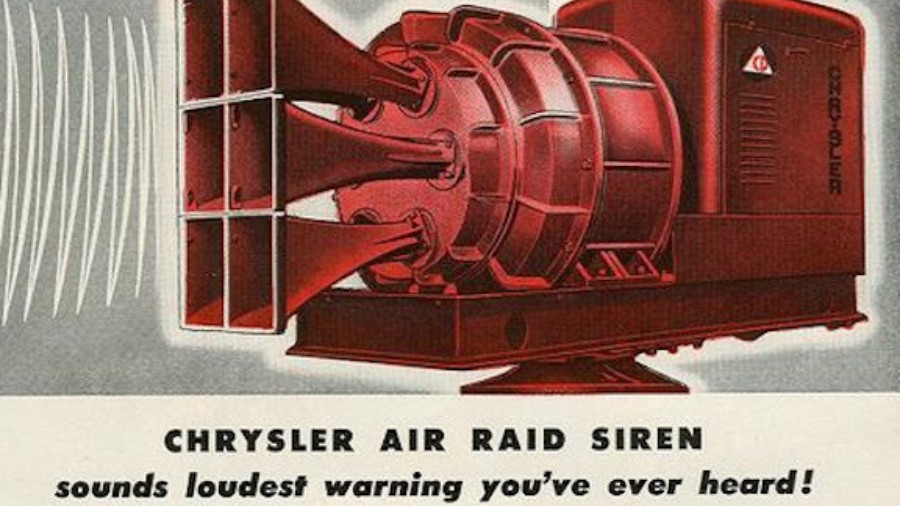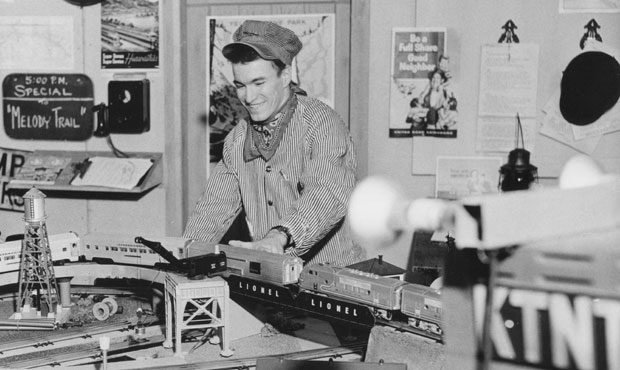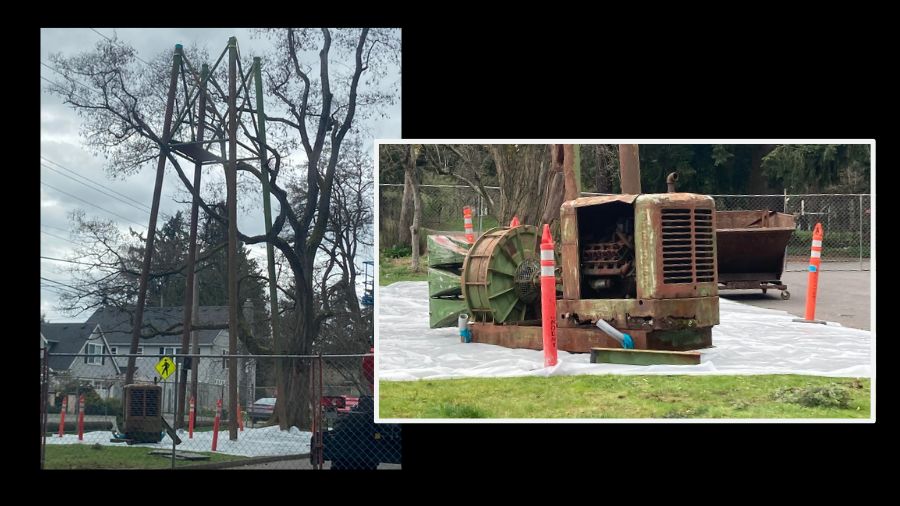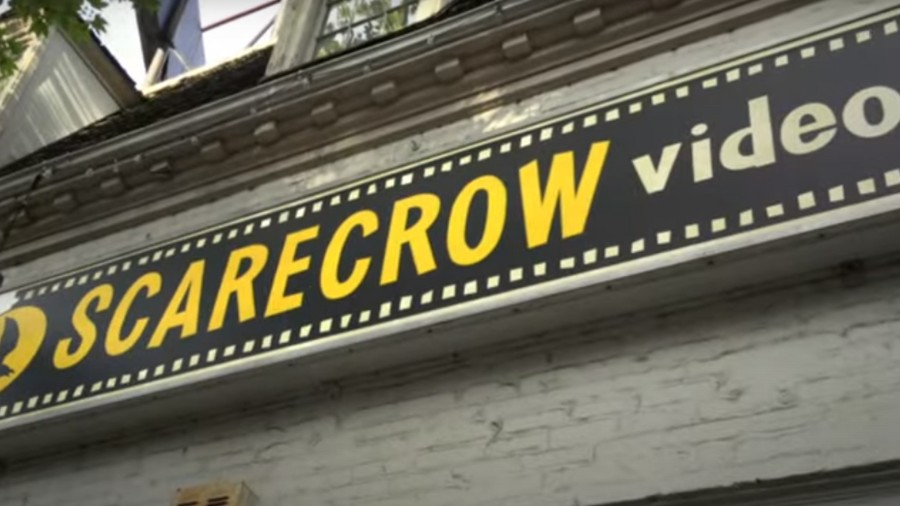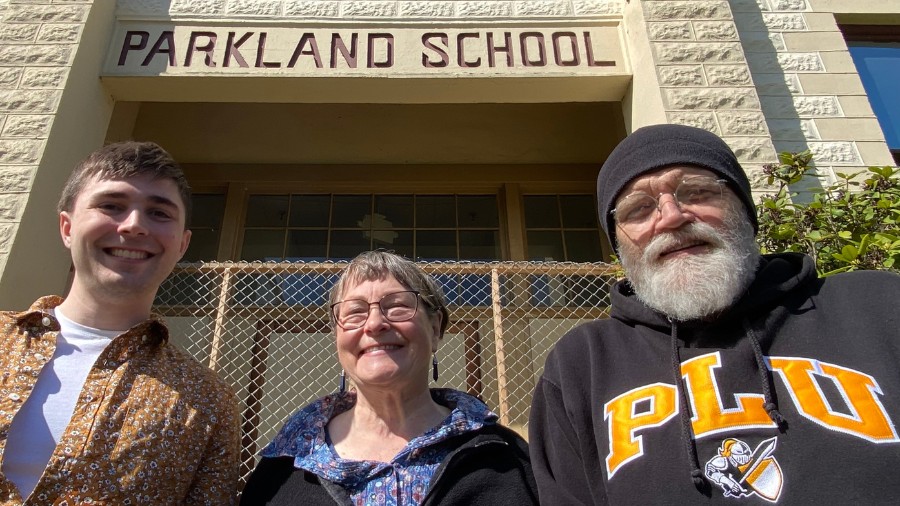George Jackson Brigade terrorized the Northwest in the 1970s
Dec 15, 2022, 6:54 AM | Updated: Dec 21, 2022, 7:25 am
A grocery store on Capitol Hill. A bank in Bellevue. A government office in Olympia. A Seattle City Light substation in Laurelhurst.
What do these places have in common?
All were bombed by a radical terrorist group operating in Seattle in the mid-1970s.
RELATED: Seattle’s long history of anti-nuke activism
The group was known as the George Jackson Brigade. It was named for a member of the Black Panthers who was imprisoned in California and who died in a shootout, and who Bob Dylan wrote a song about.
It was the tail end of a long era of unrest, from the Civil Rights movement to anti-Vietnam War protests, and it was a time of domestic terror groups like the Weather Underground, and the Symbionese Liberation Army.
The George Jackson Brigade was a group of fewer than a dozen men and women who were based in the Northwest. They committed a long list of mostly property crimes to draw attention to conditions for prisoners at places like Walla Walla State Penitentiary and the old federal prison on McNeil Island, and to foment a leftist revolution.
Their first notable attack was the bombing of the Department of Corrections office in Olympia in June 1975. There were no injuries and only minimal damage.
George Jackson Brigade bombings
Then, the Safeway on Seattle’s Capitol Hill was bombed twice in September 1975. A member of the group named Ralph “Po” Ford died when a bomb he was planting malfunctioned behind the store. In the second attack a few days later, nine people were wounded.
Next came a New Year’s Eve 1975 bombing of the Seattle City Light substation in Laurelhurst and the Safeway offices in Bellevue. According to later accounts of the group’s activities, Safeway was a target because it was one of the biggest grocery chains in the country.
Seattle City Light was targeted because the public utility’s electricians had been on strike since October 1975. The substation was destroyed by the blast and a nearby house was badly damaged, when burning oil leaked from the transformers and ran down the hill. Power was knocked out to about 2,000 residents in the neighborhood and it took several days for City Light to repair the damage – using supervisors because the workers were on strike.
A few weeks later, the group attempted to rob a branch of Pacific National Bank in Tukwila — what they would later describe as an “armed expropriation.” One member named Bruce Seidel was killed in a shootout with Tukwila Police, and two others were captured, including the founders, John Sherman and Ed Mead. Sherman, from New Jersey, and Mead, from California, had originally met while both were imprisoned in the federal penitentiary in the late 1960s on McNeil Island.
In March 1976, a member of the group named Mark Cook, who had participated in the robbery but who had gotten away, busted John Sherman out of Harborview Hospital and wounded a King County Deputy in the process. After that, things were fairly quiet for about a year — though the group robbed a half-dozen banks in Oregon to support their activities.
The George Jackson Brigade emerged again on May 12, 1977, with bombings of two branches of the old Rainier National Bank in Bellevue and Redmond — though one bomb failed to detonate. There were no injuries.
May Day attack
After the Rainer Bank attacks, the group shared what they called their “May Day Communiqué” with community radio station KRAB.
An unknown KRAB announcer read the communiqué on-air.
‘The George Jackson Brigade May Day Communiqué. Today, the George Jackson Brigade bombed two Bellevue branches of Rainier National Bank in support of the prisoner’s struggle at Walla Walla State Prison. We chose Rainier National Bank because of its links to The Seattle Times, a bourgeoisie daily newspaper. The Seattle Times has led the propaganda campaign in Seattle against the prisoners.”
KRAB also aired a taped response from a spokeswoman for Rainier Bank.
“First of all, we at Rainier Bank are extremely thankful that there were no injuries to employees or customers as a result of either the Bellevue or the Redmond incidents yesterday. And this was our biggest concern. We have standard security measures, which worked perfectly yesterday, and for precautionary reasons, we are reviewing these with all the staff of Rainier branches. For obvious reasons, we are not elaborating specifically on what these precautions are.”
The archives of The Seattle Times are rife with stories about the George Jackson Brigade, and many of those were written by a young reporter named John Arthur Wilson.
Wilson was elected King County Assessor in 2015. From 1975 to 1979, the Ingraham High grad was a reporter for The Seattle Times, driving around the city in a green 1975 V-8 Mustang and wearing wide polyester neckties. He spent most of those years covering the George Jackson Brigade, interviewing John Sherman and Ed Mead, and attending their multiple trials.
Wilson says that George Jackson Brigade didn’t exactly instill fear in the Northwest.
“But I think, clearly, it was deeply unsettling because where these bombings tended to happen,” at places like grocery stores and banks, Wilson said. “It did, at the time, strike people that it was a little bit like the radical left meets the old Wild, Wild West,” he said.
Wilson covered the George Jackson Brigade—who were radical leftists—and a few years later he also covered the white supremacists known as “The Order.” He says there’s a kind of acceptance of and by people in the Northwest that helped make possible radical movements stretching back to political unrest during the Civil War era, and to the labor movement known as the Wobblies.
Radicals in the Northwest
“That was part of what brought them here or caused them to feel comfortable here,” Wilson said. It’s as if they thought, “even if maybe we didn’t represent the majority of people in the Northwest, there was at least an acceptance of us at a level where we felt we could move around okay, we weren’t going to be singled out immediately or hunted down and all that,” Wilson said.
“It’s kind of the Northwest approach of, you know, ‘I’m OK, you’re OK, just leave me alone,’” he said.
Ed Mead and Mark Cook were both convicted for their role in the Tukwila bank robbery and sentenced to prison. After John Sherman escaped from Harborview in March 1976, he was on the run until being arrested again in Tacoma in March 1978. Sherman was then convicted on charges related to the January 1976 bank robbery and went to prison in California. Once again, he escaped in April 1979, but was finally captured again outside Denver in 1981 and sent back to prison.
John Sherman, Ed Mead and others associated with the George Jackson Brigade were all released from prison years ago, according to a detailed account of the group’s activities that was published in 2015 in The Oregonian.
John Arthur Wilson says that while the Northwest has certainly changed in the decades since the George Jackson Brigade was active, some things here remain the same.
“The Brigade was kind of a byproduct of the nature of the Northwest that even remains true somewhat today,” Wilson said. “There are small groups of people out there, these days they tend to be kind of more in the shadows, but who still believe, whether from the left or the right, that the only way they’re going to see the sort of social change they want is it’s gonna require a revolution.”
Editor’s note: The story was originally published on Oct. 11, 2017.
You can hear Feliks every Wednesday and Friday morning on Seattle’s Morning News with Dave Ross and Colleen O’Brien, read more from him here, and subscribe to The Resident Historian Podcast here. If you have a story idea, please email Feliks here.



